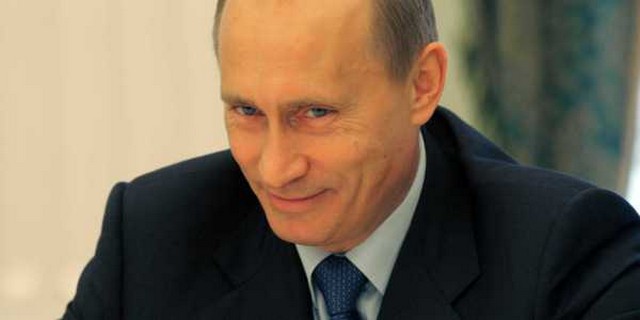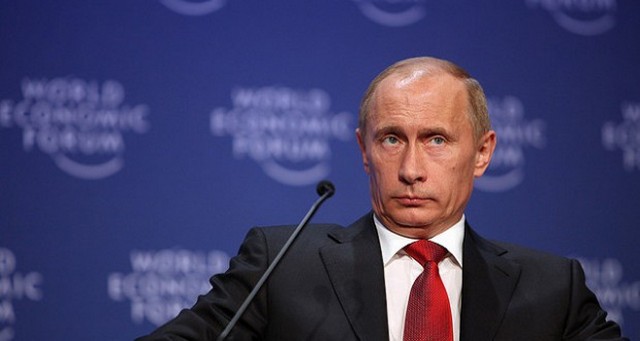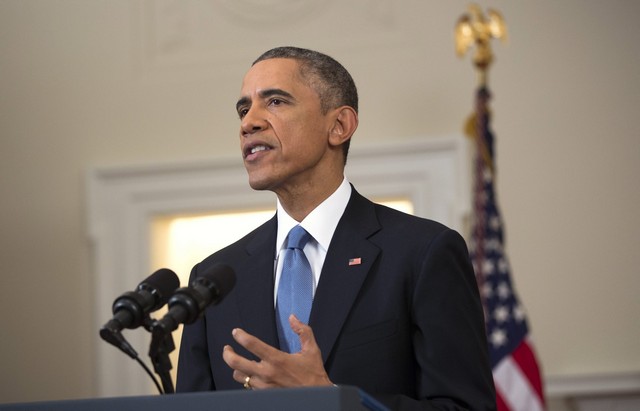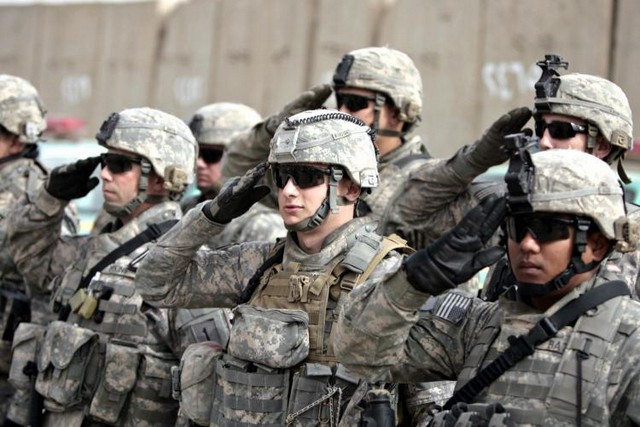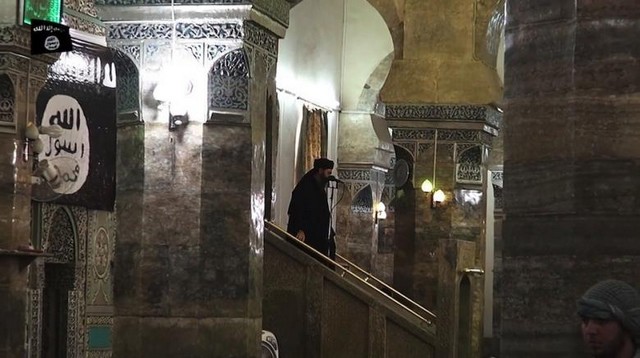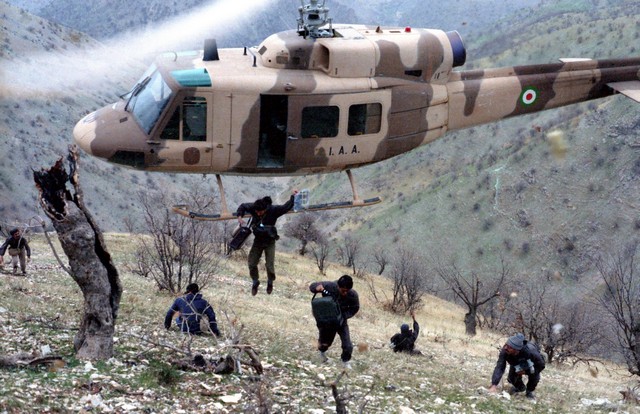By Andre Vltchek
Last night, in Beijing, I sat in a historic Szechuan restaurant with a friend who happens to be a Chinese diplomat. We exchanged some stories, ordered food, and then, suddenly, my throat felt dry and my eyes got misty.
I bowed and thanked her for the heartfelt offer China made to rescue Russia.
Just before leaving my hotel, I read the news on the RT:
“China’s foreign minister has pledged support to Russia as it faces an economic downturn due to sanctions and a drop in oil prices. Boosting trade in Yuan is a solution proposed by Beijing’s commerce minister.
‘Russia has the capability and the wisdom to overcome the existing hardship in the economic situation,’ Foreign Minister Wang Yi told journalists. China Daily reported Monday: ‘If the Russian side needs it, we will provide necessary assistance within our capacity.’”
By no means was I representing the Russian Federation here, in Beijing, nor was my friend representing China that night, at the dining table. It was an informal meeting attended by just a few friends, nothing more.
Not to mention that I am not really, ‘technically’ a Russian. Yes, I was born in Leningrad but almost my entire life I spent elsewhere… all over the world, to be precise. And in my veins, not that it really matters; it is also all confused… there circulates an explosive mixture of Russian, Chinese and European blood.
But lately, to be Russian, to me and to many others, is much more than just about blood. ‘I am a rebel; therefore I am Russian’, to paraphrase Albert Camus. Or: ‘I am Russian because I refuse to abandon the struggle.’
‘Ya Russkii!’ or ‘Cubano soy!’ It simply feels good, and makes one proud, and stronger.
***
The world is in turmoil. Like in the early 1940’s, something tremendous is gaining shape, something irreversible.
Almost all of us who have been analyzing the Empire fighting against the propaganda and nihilism it spreads, and its venomous tentacles extending to every corner of the globe, know that ‘appeasing’ Western imperialism is clearly impossible, as it is impractical, and even immoral.
Just as George W. Bush (clearly borrowing from fundamentalist Christian rhetoric), liked to say: “You are either with us or against us”. Countries are now evidently put on the spot: ‘they either accept the Western neo-colonialist doctrine’, or they get destroyed, one after another, as were Iraq, Afghanistan, Libya and Syria.
No logic can help, no negotiations, no international mediation from the United Nations. The willingness to compromise is mocked. Appeals for simple human compassion do not move the rulers of the Empire even an inch.
It is clear that the Empire is preparing for the final assault. It will not back down. It will attack, destroy and annihilate. No idea when, but it will. And it will happen sooner rather than later, and with tremendous force.
Some would ask, why now? Why is there suddenly such a rush to fight the final battle for the total control over the planet?
The answer is very clear: for the first time disgust with the Empire is widespread, and worldwide. Many people are getting cured from blindness.
The mask of benevolence and rationality has been torn off by powerful media outlets based in the countries of Latin America, in Russia, China, Iran, but also in North America where the independent media is playing an increasingly important role. It is not even a matter of some elaborate ‘objectivity’, anymore. To get things right, it is enough to call fascism by its real name, as it is sufficient to identify mass murder perpetrated by the Empire on all continents!
The mask has fallen and what is now exposed is horrifying: the face of a monster, with blood and pus, a greedy grin and merciless fangs. It is a monster that is still in love with itself, unable to see its dreadfulness. It remains proud of its fundamental religious dogma, which it often doesn’t even see as ‘religious’. It dwells on self-righteousness, and at the same time, on its twisted market-fundamentalist faith that everything and everybody are for sale. It is a monster full of complexes – both those of superiority and inferiority.
It is not a happy monster and the people it produces are mostly miserable, lonely and scared. But it cannot change, it cannot back-up, it cannot let go. It would rather destroy its children and the world, than to admit that it went totally wrong, for years, decades and centuries.
Now many people have had enough, and some have even forgotten how to be scared! And the monster knows it, and it is actually scared itself, of those who are not scared of it.
The voices of the voiceless are now resonating louder and louder – we make sure that they are!
Except in the countries where the intellectuals and ‘elites’ have totally sold out, like in Indonesia or Malaysia, the horrendous deeds of the colonialism and neo-colonialism of Europe and North America, are finally being discussed, analyzed, and understood.
And the monster, the Empire, knows that it is the beginning of the end.
It cannot live as an equal. Therefore, it will fight its final battle. It will try to win. Or, it will try to destroy the world. Because life is not worth living for it, if it is not in full control; if its God is not in control, if it is not perceived as the enforcer of the divine manifesto.
***
When I visit a barbershop in Beirut or Amman, and am asked ‘where are you from?’ (It used to be a painfully confusing and complex question to answer, just a few years ago), I now simply reply: “Russia,” and people come and hug me and say, “Thank you.”
It is not because Russia is perfect. It is not perfect – as no country on Earth could or should be. But it is because it is standing once more against the Empire, and the Empire has brought so many horrors, so much humiliation, to so many people; to billions of people around the world… and to them, to so many of them, anyone who is standing against the Empire, is a hero. This I heard recently, first hand, from people in Eritrea, China, Russia, Palestine, Ecuador, Cuba, Venezuela, and South Africa, to name just a few places.
And that is why the Empire is now ‘in such a hurry’, unwilling to wait any longer, trying to provoke Russia, to bring it, metaphorically speaking, into yet another open epic battle, like the one that was fought in ancient times, on the thick ice, by Alexander Nevski.
The Empire is in too much of a rush, it is too scared to think, to understand, to remember, what every invader had to learned the hard way: Russia can be attacked and Russian people can be murdered by millions. There can be devastation and fire; there can be ruins, tears and graves, graves, graves… Mothers burying their sons, and sons returning back home, to only encounter ashes. But Russia cannot be defeated. When the survival of the world is at stake, Russia stands up, enormous, powerful and frightening. And it fights as no other nation can; it fights for humanity, not only for itself. And it wins.
When such a moment comes, there is only one possible way how to defeat Russia: it is to destroy the entire world.
Are you ready for that, Mr. Obama? Are you ready for it, corporate America and Europe? Are you ready for it, Pentecostal Christians, Televangelists and other morally defunct beings?
Think twice. One more step, and you will find yourself facing two enormous nations, and dozens of smaller ones, ready to fight for the survival of a mankind.
Your only strength is in your weapons of mass destruction, and therefore in spreading fear. And most of your arguments have no foundations in truth, only in deception and lies.
This year, I witnessed your deeds in Iraq, in Eritrea, China, Ukraine, all over Africa and the Middle East.
This year, somehow, it appears that you went too far, that the proverbial drop has had fallen on Earth.
Stop! And stop torturing this Earth. Do not provoke, do not trigger yet another world war!
Stop, or there will be a fight. And you will lose, or we will all lose, but you will lose no matter what, because this time, Russia and China, Venezuela and Cuba, and others and many others, will not back down, anymore, while others will join.
***
Despite all of its terror, propaganda and brainwashing called ‘education’, the Empire is well aware that it is losing its grip on global power. And it is horrified, because it does not know how else to live, except with a whip in its hand. Planet Earth realizes that the ruler is sinister, ruthless and degenerate – some people realize it clearly using logic, others just sense it, intuitively. If there was really a global democracy, the people of our planet would throw the existing power structure straight to the dogs. But there isn’t, there still isn’t! Just look at the toothless, constantly humiliated United Nations. Almost everywhere, voting has become nothing more than an act of sticking a piece of paper into a box, and not much more.
***
The year 2015 is approaching. During that year, it will become clear who is fighting for the survival of our human race, and who is on the side of oppression, of imperialism, and of the Empire.
Next year, more and more countries will get destabilized or attacked. Perhaps millions of people will get killed, as they get killed every year, but most likely, this time, many more will. The ‘opposition movements’ manufactured by the West, as well as various Christian groups and other right-wing religious factions, will continue standing firmly on the side of imperialist oppression and market fundamentalism. Conservative petite bourgeoisie in the West and in almost all ‘client states’ will be battling to uphold their privileges. Fascist family structures will continue intimidating children and young people, preventing them from thinking, from rebelling and from living.
The Empire has many allies, all over the world, but most of them are of an extremely sinister nature. But their closest allies are always ignorance, servility and fear.
While our revolutions, the true ones, as well as the resistance and battles for a better world, are always based on knowledge, and in summary are nothing else other than an act of love.
***
The fight ahead of us will be extremely tough; it will be an epic struggle, involving great nation states, as well as groups and movements.
As the grungy Russian bear is being battered and provoked into a military conflict, great Chinese dragons are determined to form a protective circle, and this time, are declaring indirectly but clearly that they will come to the rescue of weaker nations attacked by the West. As even The New York Times reported:
“Mr. Xi did not mention the United States by name but took an unmistakable jab at Washington, saying, ‘The growing trend toward a multi-polar world will not change’, a reference to the Chinese view that America’s post-Cold War role as the sole superpower is drawing to a close.”
The goal is to never allow Western imperialism and colonialism to take control over the planet again, as it mercilessly did at the end of the 19th century and at the beginning of the 20th, at the cost of tens of millions of human lives.
After the centuries of plunder, rape and occupations, the West has no mandate to govern the world.
After constantly justifying and glorifying its terrible deeds, brainwashing our planet into believing that it actually brings progress and rationality to the savages (the rest of the planet), it cannot be trusted with ‘informing’ and ‘educating’ the people.
That is why we now have independent media, as well as powerful state-controlled media outlets based in the countries that are not willing to succumb to European and North American propaganda and indoctrination.
This media and education institutions should and will redraw the entire historical and contemporary narrative.
Some examples?
Instead of glorifying the wisdom of Founding Fathers of the United States, we should recall that North America was created on the unimaginable suffering of the indigenous people, on Christian bigotry and forced conversions, on genocide, and on theft of the land. And that it was not done by some new and extraterrestrial breed or race called ‘Americans’, but by the same European puritans and religious hordes that had already murdered for centuries, all over Asia, Africa and the Middle East.
‘New America’, both North and South, was predictably created on fear, violence and on theft.
We should recall the slaves who were brought in shackles from Africa. Most of them died when traversing the Ocean, women raped and humiliated, children raped and marked forever, men with their dignity taken away from them.
Women and young girls were then chained in the fields, becoming sexual toys for those ‘puritan’ white farmers. Men and children, at least those who survived, were made to work days and nights, until falling dead from exhaustion.
All this done under the shadow of the cross, progress, and ‘democracy’!
This is how America was built. This is the true story, the true narrative, of those ‘great beginnings of the land of free’!
And those theatres of Europe, cathedrals and churches, palaces and parks – all created from loot and genocides, colonialism and the Crusades, ‘military adventures’.
This is how the regime, how the Western establishment always functioned. Rape is love. Indoctrination is education and information. Fear is belief. Slavery is freedom!
Do we want this kind of world for several more decades, even centuries?
I am not asking Parisians, Londoners or New Yorkers. I am not asking corrupt businessmen in Jakarta or deranged preachers in Kinshasa, top military brass in Kigali or the murderous feudal lords in Guatemala.
No humanist, no compassionate human being wants this sort of shit!
And for the first time, people are not afraid to say it, or at least to hear it, or read it!
I am not afraid to write this. Are you scared to read it? I don’t think so.
***
The ‘peace’, we were told about again and again, is something that has to be achieved and upheld by all means.
But what kind of peace are we aiming at, and peace for whom?
The Empire want a ‘peace’ arrangement, in which countries like Cuba and Russia, Venezuela and China, just back down, give up, and surrender. That is not peace!
We are asked, ordered, to live peacefully in a world ruled by European and North American masters, as some slaves crawling in filth.
Are we expected to succumb to the one and only religious dogma on which this entire racist, imperialist and capitalist system is built?
What a prospect, what a peace!
To them, to the imperialist West, peace means only one thing: unopposed rule over the planet.
If one fights for his people, he is a terrorist, a bandit. Then, it is a war!
The Nazis called resistance fighters in Ukraine or France, ‘terrorists’.
The Israeli military calls Palestinian resistance by the same name.
The West calls any legitimate rebellion, ‘terrorist’. Even MRTA in Peru was a ‘terrorist group’; MIR resistance against Pinochet was ‘terrorist’. The mainly social movement in Lebanon – Hezbollah – is defined as ‘terrorist’, and so is the entire proud Eritrean state.
Shia Muslims are ‘terrorists’, because the West is supporting Sunni monsters in the Gulf.
Che Guevara was a terrorist, and so were Fidel and sub-commandant Marcos. So was Lumumba.
To the West, to its lackey regimes and NGO’s, true peace will come only if all natural resources were offered to the multi-national companies. All left-wing, Communist and socialist movements would be butchered, if Russia were to return to that humiliated and shapeless shit it was converted into, for a short time, under the sneaky and brutal alcoholic Boris Yeltsin, if China turned back to the Deng Xiaoping days of only providing cheap products, labor and almost no global fight against imperialism! If Venezuela was to supply crude and fuck its own people, as it used to, before the heroic revolution of Hugo Chavez, if Cuba sold its women and booze and cigars for a pittance, before its most dignified revolution took place!
‘Peace’ would be, if billions of miserably poor people were quietly and un-confrontationally dying in their slums, while the capitalists, preachers and landowners several neighborhoods further were enjoying their private clinics and private schools!
But such peace will never again be accepted!
To fight for a better world, and for the oppressed, is like writing a poem.
War is when you plunder and rape, when you murder in order to oppress, and to control others!
Peace can only be based on justice, on social justice especially; otherwise it is not peace.
***
Russia and the Union of Soviet Socialist Republics fought for its survival on many occasions. Germans attacked it, then after the Revolution in 1917, the West Europeans and North Americans attacked, and then the Germans again. Tens of millions vanished defending the Motherland. Not one apology ever came from Washington or London!
China was forced open, humiliated, ransacked, including its capital city Beijing. Those who did it, the Brits and French, are now lecturing China about ‘human rights’ and ‘freedom’. It is truly grotesque!
Look at the other nations that are now standing up against Western imperialism!
Iran, colonized, destroyed when it took a socialist path, and then infected by a Suharto-style maniac, the Shah, later attacked by Iraq, after the West had armed Baghdad.
Latin America – was ruined by colonial and neo-colonial expeditions, for centuries, reduced to nothing by the ‘Monroe Doctrine’, with death squads trained in the US; trained how to kidnap and torture, and how to rape children in front of their parents.
Should we go on? Korea: tens of thousands of civilians were burned alive by US troops in tunnels. It was one of the most brutal wars in the history of mankind, aptly described by the most brilliant investigative journalist of the 20th century – Wilfred Burchett.
Indochina – 7 million were killed, bombed to death, or burned alive. Will we ever know how many? Vietnam is now an ally!
South Africa, Zimbabwe, Eritrea…
Yes, this is our alliance. Some 2 billion people who are living in the countries that were terrorized, brutalized, reduced to ashes, but that stood again and decided to fight, rather to live like slaves.
These are all imperfect countries, but countries peaceful to the core, countries that exist mainly in order to improve the lives of their men, women and children… and those all over the world.
And look at the other nations that are resisting Western attacks – Cuba, North Korea, Eritrea – ostracized, surviving countless terrorist attacks, subversions, propaganda, and destabilizing campaigns. And then, when they mobilize, ready to protect themselves, they are designated, and defined as ‘hermit states’ or ‘beastly dictatorships’!
Who forced them into a corner?
It is all twisted. Never again! Enough!
***
Do you hear that silence, after the US decided to ‘normalize’ its relationship with Cuba? We all know why there is such a terrible silence, don’t we? Because we realize that, based on the centuries of US involvement in Latin America, this will be part of a new destructive tactic, a new attack: that Cuba may now actually be facing the greatest danger in decades! We don’t know exactly what will happen, but we are somehow certain, that something very terrible will.
Is the West going to manufacture a ‘Cigar Opposition Movement’ in Cuba? Or is it going to be yet another color?
2015 will see many battles.
But the most important first step has just been made.
China made a great symbolic gesture: calmly, respectfully, but decisively. The message is clear: “You shall not be allowed to destroy others!” Not anymore.
The Empire is decomposing; it is sick, unsustainable.
But it is also toxic, and its illness is contagious. Its propaganda is mighty and its dogmas are violent.
Let us make sure that it goes away, crumbles, step by step, without destroying the world, without dragging it into WWIII.
Let us unite, individuals and nations, movements and parties. At least until the most dangerous period passes.
Andre Vltchek is a novelist, filmmaker and investigative journalist.
26 December, 2014
Counterpunch.org

